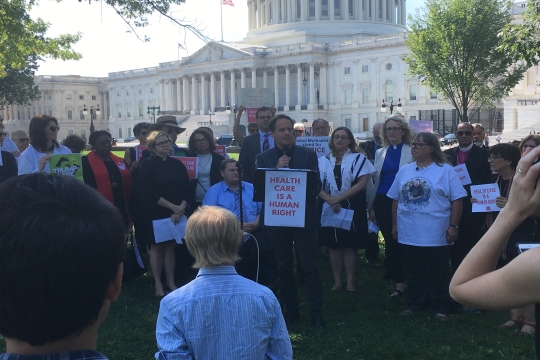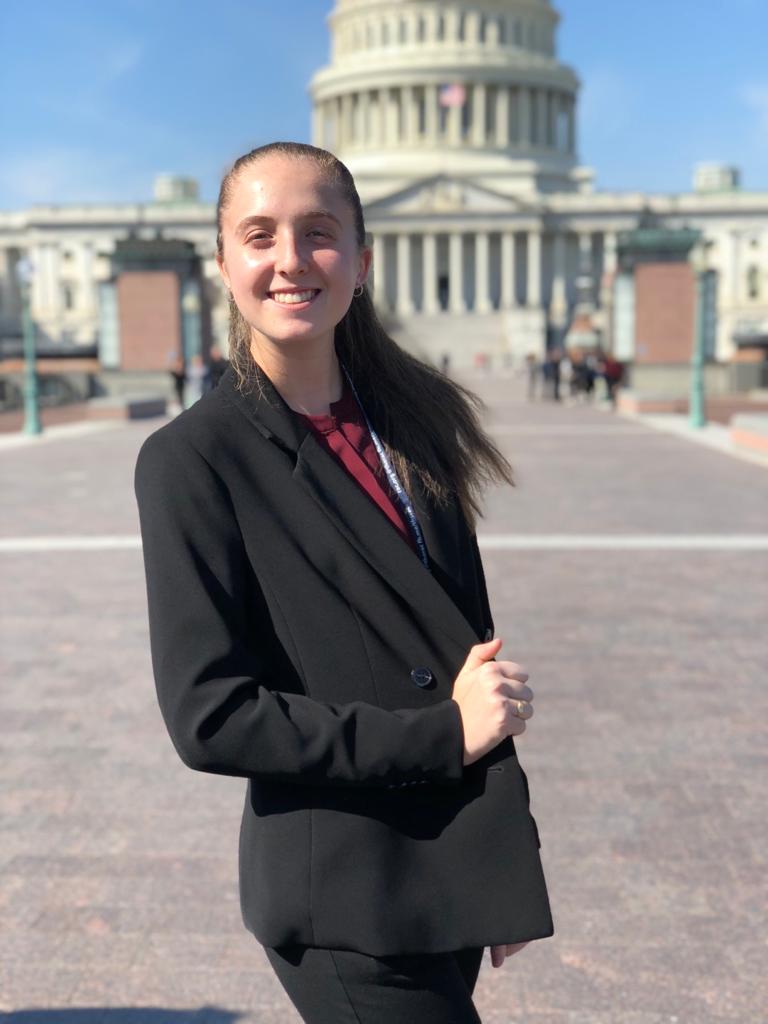
If you or someone you know is experiencing mental illness, you are not alone. Find a list of national hotlines, crisis resources, and Jewish communal resources in the United States and Canada.
I remember early on in my Jewish life, we were taught the importance of tikkun olam, repairing the world, and g’milut chasadim, acts of loving kindness. When I first learned these ideologies, I perceived them as simply saying “hi” to someone that looked lonely or picking up trash at the park. As I grew, my understanding of the world and my place in it developed with me. I learned the idea of nuance, which lifted the rose-tinted glasses of adolescence, and revealed a place of meniality, monotony, and a lack of sweeping change: the real world.
My first taste of advocacy was in middle school. Our school administration turned a student-created walkout to protest gun violence into a 10-minute ceremony to reassure students that our school campus was safe, and that we had no reason to be scared for our own safety. Fourteen of my classmates and I wrote a letter to our principal to voice our dissatisfaction with the ceremony. We never received a reply and the letter was never addressed by the school administration. The lack of resolution for the issue lit a fire in me to help those who are powerless learn to advocate for themselves.
Once I started high school, I moved my advocacy efforts away from gun violence prevention, and towards mental health and bullying. I began by creating a No Place for Hate committee on my campus. We started partnering with our administration, where I now serve as the student advocate for wellness. We began student-to-parent forums to give parents insights into the lives of a modern teenager and gained traction in the school district for our work on mental health and wellness.
In early 2020, I went to Washington D.C. through the L’Taken Seminar program run by the RAC, connecting the abstract ideas of loving kindness and repairing the world to the practical elements of policy. One of the most powerful parts of the trip was the mental health seminar I attended. It connected mental health and Judaism in a way I never thought they could be, showing me that mental health has been thought of for thousands of years in Jewish culture. We read and analyzed excerpts from rabbis, prophets, and the Talmud about the importance of acknowledging mental illness, normalizing, and reaching out for help when needed. I realized that Judaism and advocacy were fundamentally the same, both striving to better the world for others.
Then the pandemic hit. I sat in my room for a few weeks, processing the paradigm shift that left the world reeling, exposed deep societal flaws, and exacerbated a mental health crisis. It was time to get to work. I signed up for the RAC Teen Justice Fellowship, where we had the opportunity to ask Rabbi Jonah Pesner about social justice work. I asked him how to make broad changes in a bureaucratic organization, like a school district. He told me to start small, find a way to get my foot in the door, and grow myself to a point where the district could not ignore me.
I randomly met two students from two other schools in my district at a Zoom wellness meeting, and we made a plan to improve mental health services for students in our district. We created a committee with students from almost every high school in our school district and tasked them with creating mental health clubs at their schools. We have since created a mental health resource guide and a suicide prevention manual, we are working to get staff on every campus trained to address mental health crises, we changed our absence code so mental health counts as an excused absence, and we have created a standardized, mandatory mental health curriculum for every student in our school district.
Our committee is making sure that the curriculum de-stigmatizes mental illness and provides resources and education so students can find the help they need, which embodies the Jewish values that inspired me. We are promoting g’milut chasadim by mentoring teachers on wellness strategies to make students feel more comfortable in a digital classroom and encouraging kindness and patience. And we are practicing tikkun olam by making our school district a safe place for any student to get the help they need.
But I need your help to ensure that every student can access mental health care, no matter where they live. The U.S. House of Representatives passed the Mental Health Services for Students Act in 2021, which would provide $200 million in grant funding per year for five years to expand mental health services in public schools. Now, the Senate must act. Urge your senators to pass the Mental Health Services for Students Act.
Related Posts

It’s Time for Congress to Pass a Build Back Better Bill That Expands Health Care

Addressing Mental Illness in a Time of COVID-19 and Systemic Racism


